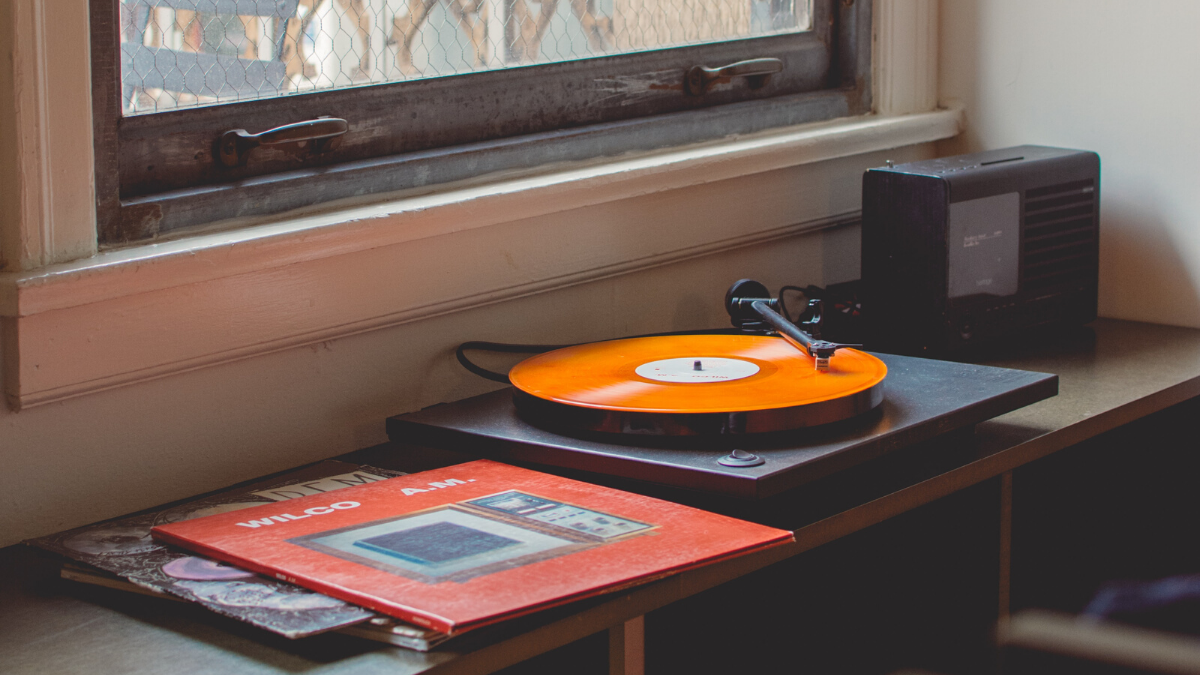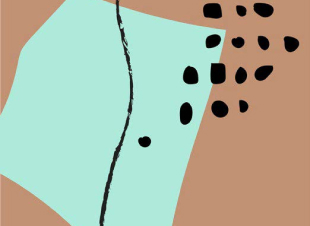How culture helps us in dark times

As we come to terms with our ‘stay at home’ directive in Australia, many of us find ourselves turning to books, music, visual art, film, craft, photography, writing and an array of other artistic and creative forms. Some people have even taken to recreating masterpieces using everyday objects. Whether we are consuming it or creating it (or a mixture of both), this surge towards creativity, culture and the arts serves as an important reminder of its transformative power in our lives.
In November 2019, the World Health Organisation released a summary report of the evidence on the role of the arts in improving health and wellbeing. With this evidence base to draw on, we wanted to share a few ways that culture can help our mental health and wellbeing right now, along with some activities to try:
Welcoming Darkness
While it is important to try to remain optimistic about the future of humanity, we also need space and time to process the more difficult emotions we are experiencing. The arts are one of the best realms we have for exploring the dark and complex parts of the human condition.
Whether you are sitting with fear, grief or anger, it can help to connect with an artistic expression of your experience. As consumer psychologist Adam Ferrier understands, “The fact that we can enjoy the feelings of being sad, lonely, angry or depressed while listening to music or enjoying art in general has always been the gift of artists.”
Activity: think of a piece of music that brings together joy and sadness for you. Grab a cup of tea and a notebook and pen and sit in a comfy place. Listen to the song uninterrupted and write a list of all the feelings and thoughts that come up. Try to name them with just one or two words.
Illuminating the Imagination
For many, staying home feels equivalent to being grounded as a teenager. But adopting a more curious mindset can open us up to a completely new world. Writer and popular philosopher Alain de Botton tells the story of Xavier de Maistre, a 27 year old Frenchman in 1790 who locked himself at home and studied the wonder and beauty of what was closest to him. The account, titled A Journey Around My Room, is a beautiful reminder that no matter how small or confined our world, it is full of fascination.
Activity: choose an object in your home that is a bit taken-for-granted. It could be the microwave, the chopping board, or a sad looking houseplant. Write a haiku to express your appreciation for this object in your life and place it next to the object.
Reducing Anxiety and Stress
Singing, dancing, listening to music, watching a theatre performance and even watching ASMR videos on YouTube can all reduce our anxiety and stress levels. A key point to remember, however, is that the particular forms of culture that we find relaxing are subjective. Classical music is often cited as being calming, however you might enjoy the nostalgia and joy of rocking along to You Am I’s ‘Berlin Chair’, while your partner won’t stop listening to John Farnam’s ‘Your the Voice’ on repeat. Remember that we are all different, and you might want to consider wearing headphones.
Activity: head over to Common People Dance Project and register for a virtual dance party. Costumes encouraged.
A Positive Focus for Rumination
Rather than our over-thinking minds ruminating on something out of our control (ie. covid-19), we can turn our mental attention to creativity. By writing, painting, drawing, knitting, cooking or gardening we move our focus onto something positive and within our control. This helps our minds to stay in the present moment and provides a welcome relief from constant worry. We can also find ourselves able to express unexpressed feelings, ones which we might not be aware of or struggle to put into words.
Activity: give yourself a 15-minute creative break each day. You might choose to do an existing creative practice, or you could try these amazing free colouring books from 113 museums around the world.
Self-Transcendence
Arts and culture provide a crucial link between our inner and outer worlds. When we discover art that resonates with us we can feel a sense of relief and belonging instantaneously. The feelings and thoughts we have been unable to articulate are crystalised and reflected back to us in ways we might have thought impossible. The feeling is sublime. We might suddenly feel that we are not as alone as we thought in the world, we are interconnected with other people across time and space.
Culture helps us tap into feelings such as empathy, gratitude, compassion and awe. These are known as self-transcendent emotions and evolved to help manage social relationships and orient humans to a world that is bigger than themselves. They help us to put aside our short-term, selfish goals for the greater good. Something that is deeply required during a global crisis.
Activity: log onto the Social Distancing Festival to discover beautiful works of art and performance. We hope you find at least one that taps into these self-transcendent emotions and leaves you feeling connected and inspired.
It’s important to acknowledge that our arts and cultural industries have taken an enormous hit due to covid-19 and recent reductions in arts funding. Please reach out to the artists and arts workers in your life and support them in any way you can.




